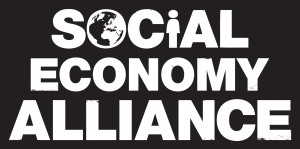By Celia Richardson, Director of the Social Economy Alliance
A wise man or woman once said that elections are won on either hope or outrage. As recent news headlines attest, the 2015 General Election campaign has started in earnest, and there’s not much hope in sight. The social enterprise, social finance, co-operative and social innovation organisations are starting to unite with universities, housing associations and other. Twenty three organisations have agreed to work together formally to push the social economy up the agenda for 2015. We are called the Social Economy Alliance and our aim is to ensure that all of the main party manifestoes carry policies that will grow the social economy.
We’ve got a big challenge. There’s plenty that social economy organisations can work with when it comes to outrage. We cannot sanction a rush to return the economy to growth with all of the structural problems we know it still has. This will only expose society to further entrenched problems and financial turmoil.
But fatalism could be the worst enemy of our nascent lobby. We don’t want an electorate that is ready to accept any growth as good growth. We need voters to believe that the type of growth people want is actually possible. Economic growth that brings shared rises in living standards, that is sustainable and environmentally sound.
There are many things in our favour: we are an evidence-based collaboration. Our organisations offer proven opportunities to stimulate the economy; and return it to growth for all. Social economics is not a zero-sum game – it doesn’t pit one social or economic group or sector against another, but evinces collaboration, innovation, sustainable growth and sustainable approaches to scarce resources. Our organisations are fervently pro-business and enterprise, as well as fervently pro-society, and warn against the separation of social and economic policy. Both must be mutually reinforcing. A more social economy is about focusing on making business and economics as socially and environmentally valuable as possible.
Few would disagree that many of the country’s economic problems are a result of too much concentration of power at the top of our businesses. But to date there has been an alarming failure among commentators to notice the huge bottom-up economic successes we’ve enjoyed in the UK.
This is why we’ve started the Social Economy Alliance. It needs widespread support. You can find out more and offer your support at www.socialeconomyalliance.org.uk

